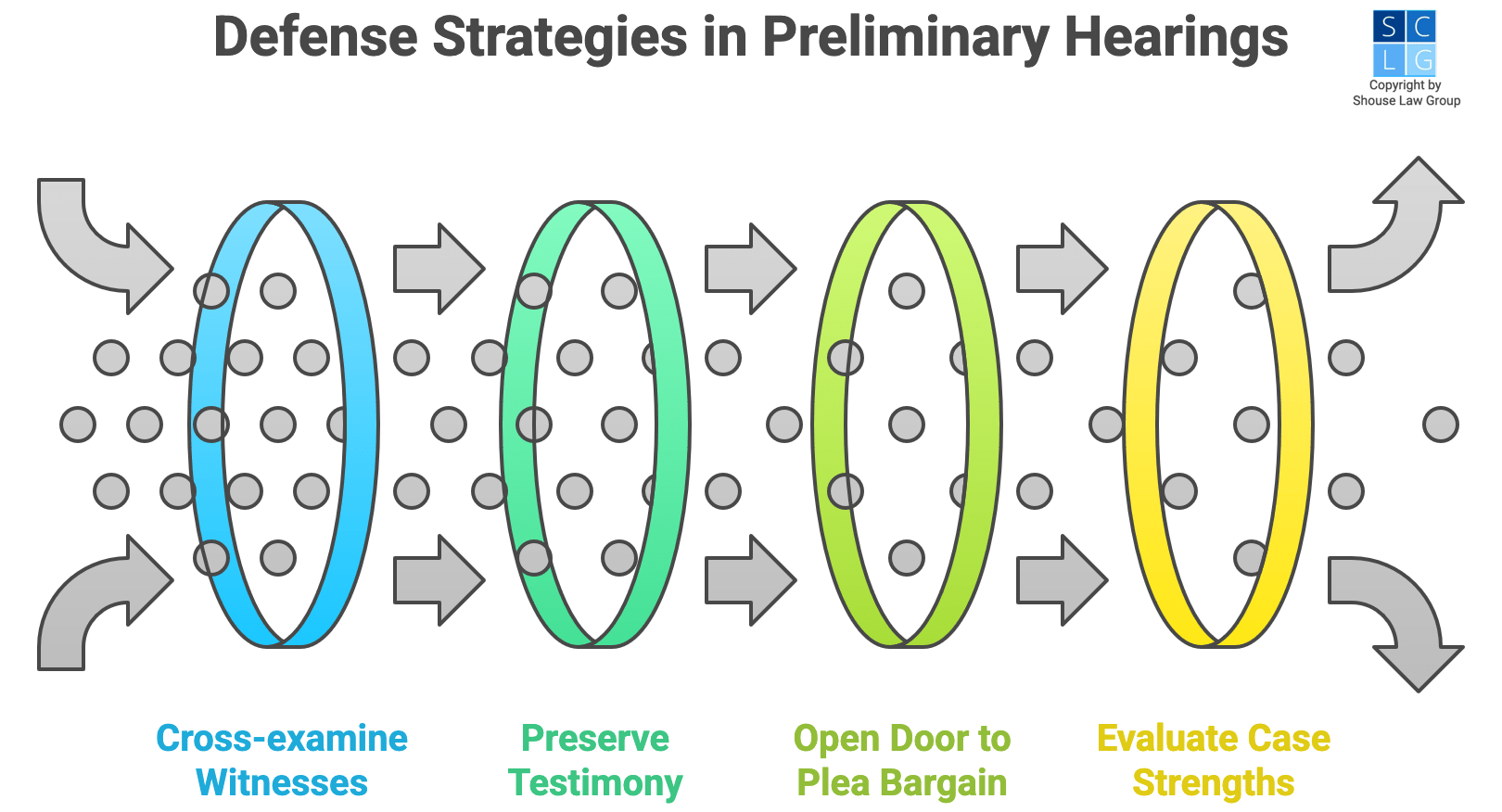
People facing a preliminary hearing often have one burning question: Can the charges be dropped at the hearing?
The short answer is yes, it is possible that either the judge or the prosecutor will drop the charges. The judge will dismiss the case if they find, based on the evidence presented at the preliminary hearing, that there is not sufficient probable cause to “hold you to answer” and bind you over for trial.
It’s also possible that the prosecutor may drop the charges after seeing the state’s witnesses testify at the preliminary hearing, and they lose confidence that the state will be able to prove its case at trial. Either way, it is possible for you to win the case at the preliminary hearing.
Below I discuss what you need to know about preliminary hearings. Also listen to our informative podcast on the subject:
1. What is a preliminary hearing?
A preliminary hearing is a court hearing in criminal cases where a judge determines if there is enough evidence, or sufficient evidence, to hold you for a criminal trial.1
During the hearing, the prosecutor has the burden to show that there is probable cause to believe that:
- a crime was committed, and
- you (the defendant) are the person that committed it.2
What is probable cause?
Probable cause is a lower standard of proof than the “beyond a reasonable doubt” standard used in an actual trial. A district attorney will meet this standard if they can show that there is a reasonable belief that you committed the crime charged.3
In contrast, a prosecutor will meet the beyond a reasonable doubt standard if they can prove to a moral certainty that you committed a crime.4
If there is a lack of probable cause to support a criminal charge during a prelim, the judge can dismiss the charge or reduce it to a lesser crime.5
Are prelims required?
Note that preliminary hearings are not always required, and some states only say they must be held with felony charges (as opposed to misdemeanor charges).6 Some states hold grand jury proceedings instead of conducting a hearing.
If a hearing is held, it typically must be held within 14 days of the initial appearance if you are being held in custody. If you are out on bail, then the preliminary hearing must be held within 21 days of the initial appearance.7

Preliminary hearings are unnecessary if you are indicted by a grand jury because grand juries do the job of finding probable cause.
2. Can you be represented by a defense attorney?
Yes. You have the right to be represented by a criminal defense lawyer at a preliminary hearing.8 This right includes the right to a court-appointed public defender if you cannot afford to hire a private lawyer.9
During the hearing, your legal counsel is allowed to present evidence to the judge that shows you should not stand trial for the crime charged. Your lawyer can conduct cross-examination of any of the prosecution witnesses and even cast doubt on any of the prosecutor’s physical evidence.
Note that your defense attorney may use the preliminary hearing to:
- build a foundation to impeach the prosecutor’s witnesses,
- preserve a witness’s testimony,
- provide a basis for plea bargain negotiations, and
- evaluate the strengths and weaknesses of the case.

3. Is a preliminary hearing the same as an arraignment?
A preliminary hearing is not the same proceeding as an arraignment. An arraignment is usually the first court hearing in a criminal case where:
- you enter a plea (guilty, not guilty, or no contest),
- the issue of bail and release is determined, and
- a future court date is set.
A judge will also read the criminal charges that have been filed against you during an arraignment.
As with a preliminary hearing, you have the right to be represented by a defense attorney at an arraignment. You also have the right:
- against self-incrimination,
- to a speedy trial,
- to a trial by jury, and
- to produce and confront witnesses.
Additional Resources
For more in-depth information on preliminary hearings, refer to the following scholarly articles:
- The Preliminary Hearing in Los Angeles: Some Field Findings and Legal-Policy Observations – UCLA Law Review.
- The Availability of a First Appearance and Preliminary Hearing – Now You See Them, Now You Don’t – William & Mary Law School Scholarship Repository.
- Post-Indictment Preliminary Hearings – John Marshall Journal of Practice & Procedure.
- Preliminary Hearings in Homicide Cases: A Hearing Delayed Is a Hearing Denied – Journal of Criminal Law, Criminology and Police Science.
- The Right to Counsel at the Preliminary Hearing – Missouri Law Review.
Legal References:
- Black’s Law Dictionary, Sixth Edition – “Preliminary hearing.”
- See same. See also Federal Rule of Criminal Procedure 5.1.
- Black’s Law Dictionary, Sixth Edition – “Probable cause.”
- Black’s Law Dictionary, Sixth Edition – “Beyond a reasonable doubt.”
- See, for example, Florida Rule of Criminal Procedure 3.133.
- See, for example, Colorado Rule of Criminal Procedure 5(a)(4). See also People v. Brothers (2021) 498 P.3d 1134.
- See, for example, Idaho Criminal Rule 5.1 and Mississippi Rule of Criminal Procedure 6.1.
- See, for example, California Penal Code 858 PC. See, for example, People v. Alazar (Cal.App. 2024) .
- See, for example, California Penal Code 987 PC.

